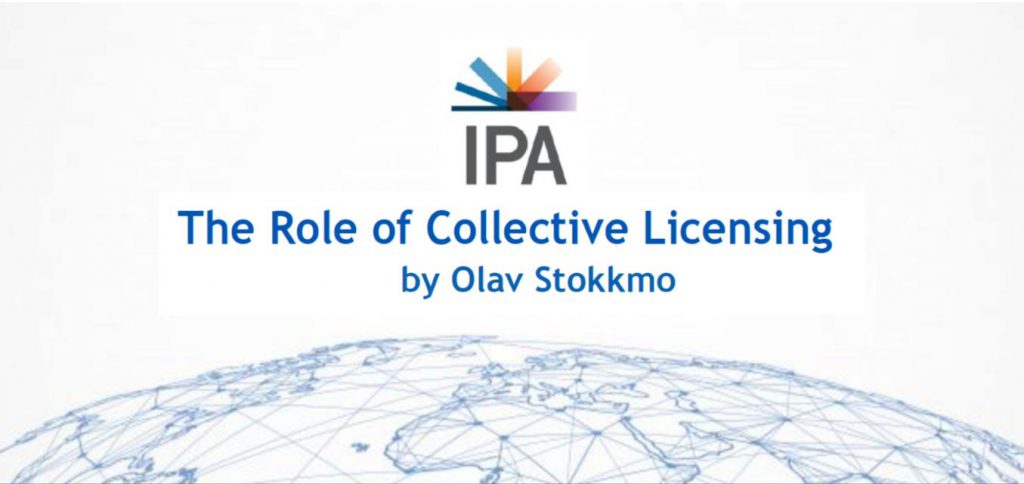You can download the full chapter, The Role of Collective Licensing here.
This paper forms part of a broader overview of licensing across the publishing landscape. Forthcoming papers will be published in 2019 and early 2020 ahead of the International Publishers Congress being held in Lillehammer, Norway from 28-30 May 2020. IPA is grateful for the valuable contributions from all those involved. A special thank you to the expert authors, IPA members, IFRRO, CMOs, the members of the advisory board and, last but not least, to Kopinor for their expertise and financial support which has made this possible.
The Executive Summary reads:
Educational institutions, students, teachers, researchers all depend on access to copyright works. Good local educational resources are needed, in addition to foreign materials. This requires adequate protection of rights, and a proper balance between user needs and the rights of authors and publishers.
Collective rights administration makes copyright work. It complements authorisation granted by authors or publishers directly to use their works when they do not want to or cannot administer the rights themselves. This is typically the case in respect of multiple copying of portions of already published works for use in education. Authors and publishers on all continents have agreed that if students need, for instance, a chapter or some pages only from certain works, it is necessary to find a smooth way to enable and legalise this. The answer to such legitimate requests from education and research was the establishment of RROs – Reproduction Rights Organisations.
RROs are the Collective Management Organisations (CMOs) in the publishing sector. Currently, there are 105 CMOs carrying out RRO activities in 85 countries worldwide. They operate under different legal regimes, which in turn has led to three main different models of operation. Those models are referred to as ‘Voluntary Collective Licensing’; ‘Voluntary collective licensing with back up in legislation’ to also include, by law, works in the same categories by non-mandating rightsholders, e.g. the Extended Collective Licence Agreement (ECL); and the ‘Non-voluntary (or Statutory) Licence’, with or without a levy on equipment and devices.
RROs act as a ‘‘one-stop access point’’ to authorise on behalf of rightsholders1 certain secondary uses of their already published works. They operate in almost any territory and have the ability to adapt to local conditions, education systems, economic circumstances and cultures. Mandates to include works of foreign rightsholders in the repertoire are acquired through agreements with sister RROs, and, where there is a back up in legislation or a non-voluntary licence, also by law. RROs offer repertoire licences with a blanket authorisation to use all works in the repertoire on standardised conditions, as well as transactional (case-by-case/pay-per-use) licences, for instance when there is a request to copy beyond the copy limit in the repertoire licence.
Generally, the authorisation administered by a RRO allows the reproduction from already published printed and digital works, on paper or in digital formats. The portion of the work allowed is typically 10-20%, a chapter of a book, or an entire journal article. Some RRO licence agreements admit a larger portion to be copied if the work is not available, for example because it is out-of-commerce. The selected portion may be photocopied or scanned and printed for distribution in the classroom. If the institution has opted for a licence on digital uses, the portion of the work may also be stored, accessed and distributed electronically in closed networks and made available on Virtual Learning Environment platforms (VLE). Tariffs are negotiated locally taking account of local conditions, needs and requirements. They are most often fixed as a price per page or per student, or set as a lump sum.
Collective rights management by RROs contributes to increased opportunities for a sustainable national creative and publishing sector. An objective is the creation of a range of teaching materials founded in local culture and traditions and adapted to local user needs. The benefit is not limited to education and research, the entire society profits. RROs have various ways to contribute to sustainable developments; it may be in the form of special bilateral or unilateral agreements, or as direct support.

